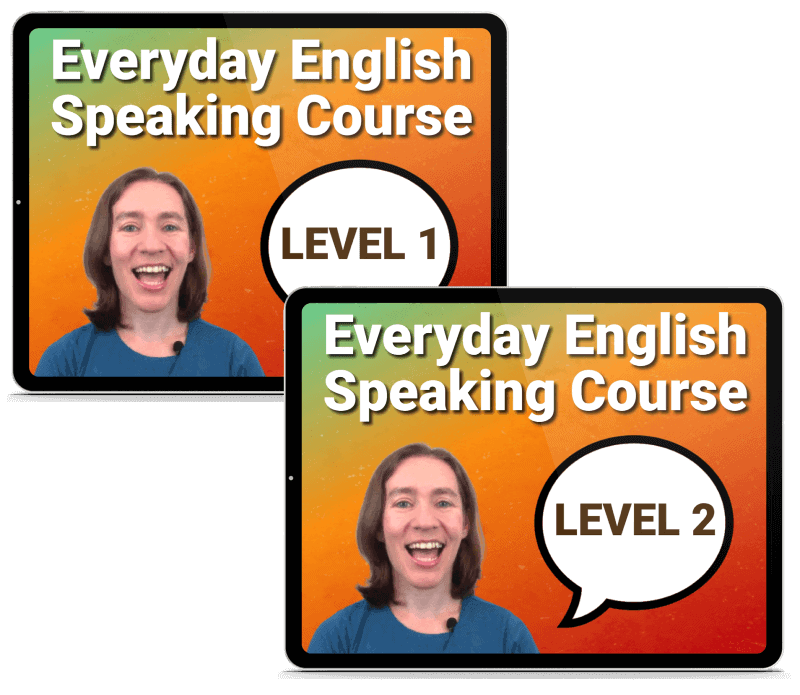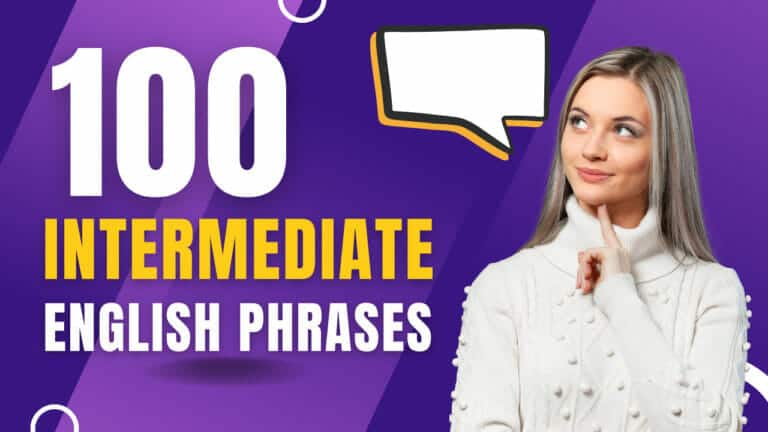
Everyday English Speaking Courses
Hello, students. It’s Shayna from espressoenglish.net. If you’re watching me today, then I’d love to see you write “hello” or “hi” in the comments.
Today I want to talk about a very common situation for English learners, and that is when someone says something to you in English and you don’t know the right way to respond. You know you have to say something but you’re not sure what the natural phrase is, or you don’t know how a native English speaker would say it, so you kind of pause and just say, “Yes,” or “Oh.” It’s very uncomfortable, right, when you don’t know the right thing to say.
There are some times in English when you know the right thing to stay automatically, like when someone says, “Thank you,” you automatically say, “You’re welcome.” (Click here to learn some other replies to “thank you.”) Or, when someone says, “Have a nice day,” it’s easy to just reply, “You too,” or “Thanks, you to.”
But there are some situations when you don’t know the correct phrase or you don’t know a natural-sounding phrase. This is really frustrating. In today’s lesson I want to answer a student question that I got some time ago, which is what’s an appropriate response for when you invite somebody else to go to an event or a party or go out, and the other person says they can’t go.
What do you say in reply? Do you say, “Thank you?” Do you say, “Sorry?” I don’t know. Today I’m going to teach you some different phrases you can use in this situation.
I won’t be able to make it = I can’t go
When you invite someone to some event and they can’t attend, then they’ll probably say one of these phrases. They might say, “I can’t go … ” to the party or to the concert. Or, here’s another really common one. They might say, “I won’t be able to make it.”
Now you might look at this phrase and think, “Make what? I invited them to go somewhere, not make something.” But this is just an informal way to say, “I won’t be able to attend,” or “I won’t be able to go to this event,” or this party, this meeting, whatever the invitation was. “I can’t go,” or “I won’t be able to make it,” these are ways for a person to say that they cannot attend the event you invited them to.
That’s too bad / That’s a shame
What can you say in response? Well, here are a few possibilities.
You can say, “That’s too bad,” or “That’s a shame.” This expresses just a little bit of sadness that the other person can’t attend the event or party. Okay? “That’s too bad,” or “That’s a shame.” We usually say this with a little bit of a sad tone in our voice.
Don’t say it very happily. Don’t say, “That’s too bad!” That’s not appropriate for the situation. You want to show that you are a little bit sad that the other person can’t come to the event, so you would say it like this: “Oh, that’s too bad,” or “Oh, that’s a shame.” You see how my voice goes down and sounds a little bit sad? That would be a good response when you invite someone to a party, they say, “I won’t be able to make it,” you can say, “Oh, that’s too bad.” Okay?
I’m sorry to hear that / I’m sorry that…
Another possibility is to use these phrases that start with “I’m sorry.” You can say, “I’m sorry to hear that,” or “I’m sorry that you won’t be joining us.” You might wonder, why am I apologizing, because it’s not my fault that the other person can’t go? But in these phrases you’re not actually apologizing. You’re just expressing sadness that the other person won’t be able to join you at the event or party or meeting.
These are a little more formal. These are good for professional situations. If you invite a colleague to a conference and they say something like “I cannot go,” then you can say, “Oh, I’m sorry to hear that,” or “I’m sorry you won’t be joining us for drinks after work,” or something like that. Okay?
We’ll miss you.
Then finally, two more possibilities. One is to say, “We’ll miss you.” Now this has a little more affection in it. We would normally use “We’ll miss you” with friends, not so much with colleagues. If you invite a good friend or a relative to go to an amusement park with a group of friends and they say, “Oh, I can’t go because I have a dentist appointment that weekend,” then you could say, “Oh, we’ll miss you.”
This expresses the fact that you will feel sad because that other person isn’t present, because you like that person and you want to spend time with him or her. Okay? You can also use some of these phrases in combination. If your friend says, “I won’t be able to go to the amusement park,” then you could say, “Oh, that’s too bad. We’ll miss you.” It’s a way to make them feel loved and included.
Maybe next time.
You can also add this phrase, “Maybe next time,” if it’s something that possibly there will be a future opportunity.
For example, maybe every Friday night you like to go bowling with your friends, and you invite a new friend, and they can’t go this Friday, then you could say, “Oh, that’s a shame. Maybe next time.” Okay?
Do you see how you can use these different phrases to reply to this situation? Now you have some possibilities, so instead of not knowing what to say, you have a lot of phrases that you can use to respond when someone else tells you that they can’t go, or they won’t be able to make it to an event that you’ve invited them to. All right?
Learn spoken English phrases
Now if you want to learn more of the phrases that native English speakers use in lots of different situations in everyday life, I have courses about everyday English speaking. You can click on the link with this video in order to see more details about these courses, but inside the lessons I teach you situations just like this, things that you will encounter in everyday life in living in an English-speaking country, or traveling, or interacting with native English speakers.
I’ll teach you several possibilities for phrases that you can say so that you can be confident that you know what to say, and not just stay quiet or say nothing, or be afraid of saying the wrong thing. All right? I hope to see you inside one of my courses. I hope you learned a lot from this video. If you enjoyed it, please make sure to like the video and share it with your friends. See you guys in the next lesson.
Learn more:










